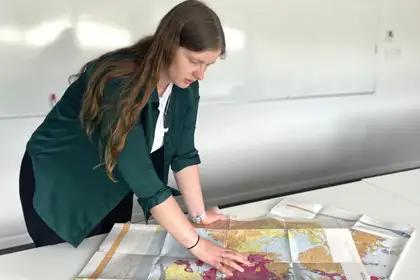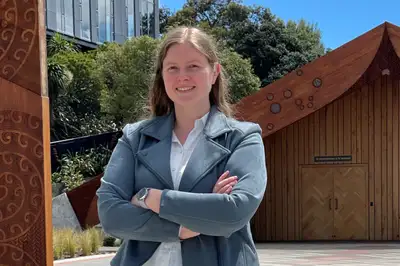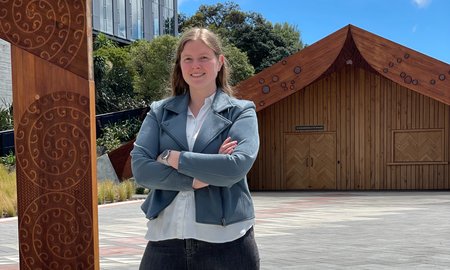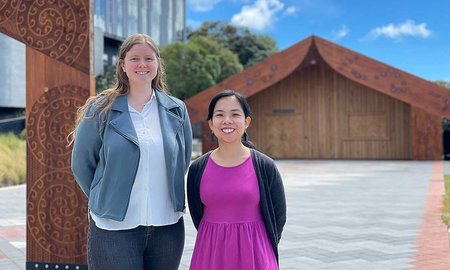
The Te Apārangi Royal Society’s Mana Tūāpapa Future Leader Fellowship recognises 20 promising early-career researchers with the potential to become future thought leaders in Aotearoa New Zealand. Each recipient is awarded $820,000 over the next four years.
Dr Vinnell’s research focuses on risk perception and communication to identify ways of increasing the public’s resilience to natural hazards. She says she’s excited for the opportunity to delve into some of the big questions in the field of natural hazard resilience.
“It’s a perfect blend of the theoretical and applied parts of my research. I’ll be exploring deep, conceptual questions around how people think and act in the context of risk, drawing on my psychology background, while also working with communities and agencies to improve resilience on the ground. The mana behind this fellowship will allow me to connect with international expertise, which will not only inform our work here in New Zealand but also help us share our home-grown mahi with the world.”
Her project will explore why, despite decades of educational efforts and repeated experiences with natural events, public preparedness has largely not improved. By addressing the challenges of understanding how people perceive risk, the findings can be used to improve and refine communication strategies and reduce public vulnerability.
“We talk a lot about ‘risk’ in New Zealand, but it means very different things to different people, from science to policy to practice to the public. This research will help me understand these different views and hopefully bring people onto the same page. This will allow us to have better conversations and tailor our efforts to encourage the public to prepare for natural hazards in ways that align with how everyday New Zealanders understand, think about and act on risk. In the long term, this will hopefully mean people can make more informed decisions and feel more motivated to take action,” Dr Vinnell says.
The potential barriers include incorrect assumptions about how the public understands, perceives and responds to risk, as well as the possibility that current risk communication efforts may be insufficient and even detrimental to public preparedness.
A common misconception Dr Vinnell has encountered is the idea that being ‘prepared’ is something you either are or aren’t.
“When we list all the ways people can prepare for natural hazards, they might think they could never possibly do everything so there’s no point in doing anything. But preparedness is a range. Every single step that people take will make them more prepared, so even if you can only do one thing, it’s worth it.”
Read more about the Fellowship and other recipients here.

Related news
Research shows New Zealanders know very little about early earthquake warning systems
New research published in Frontiers in Communication today reveals that most New Zealanders know very little about systems for early earthquake warning in Aotearoa New Zealand.

Understanding perceptions about natural hazards in lower seismic areas
Dr Lauren Vinnell from the Joint Centre of Disaster Research is leading a research project to better understand what influences the thoughts and actions of people who live in regions of lower seismic risk.

Massey researchers awarded Earthquake Commission Biennial Grants
Three Massey University researchers have been awarded a total of nearly $200,000 from the Earthquake Commission, to help New Zealanders better understand our natural hazard risk and identify ways to reduce the impact of those hazards.
